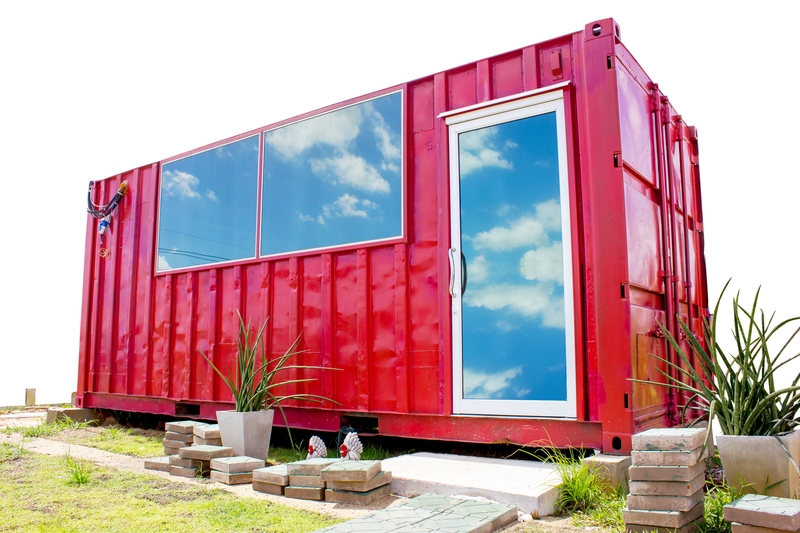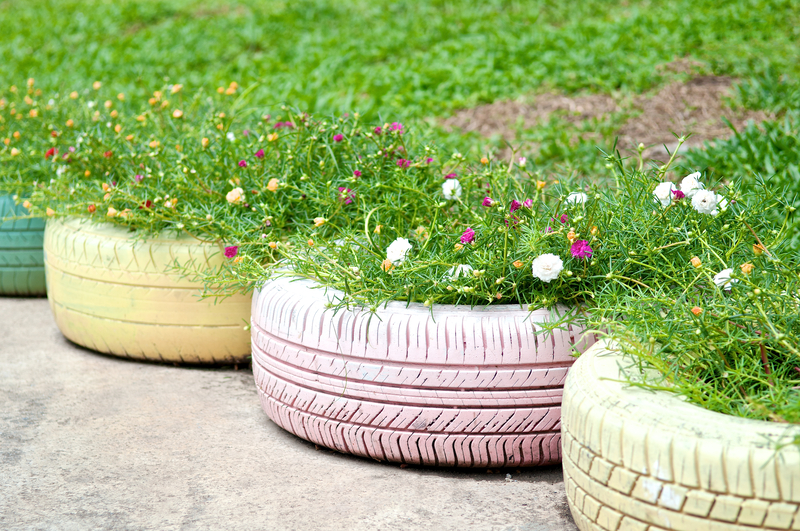Experience Stress Relief with Simple De-cluttering Tips
In today's fast-paced world, stress has become a common companion. Amid demanding schedules and constant digital noise, your physical surroundings can either help you find peace or add to the chaos. Clutter-free environments have been consistently linked to improved mental wellbeing and reduced anxiety. If you're seeking effective ways to ease your mind, look no further: simple de-cluttering tips are a proven path to profound stress relief.

Why De-cluttering Reduces Stress
Clutter isn't just about the items that fill your home or workspace--it's about the mental state those items create. According to psychologists, a cluttered environment can hinder your brain's ability to process information, leading to increased feelings of overwhelm and anxiety. Conversely, organized, minimalist spaces foster a sense of calm and order.
- Visual Overload: Clutter bombards the mind with excessive stimuli, creating mental fatigue and distraction.
- Decision Fatigue: The more items you have, the more decisions you must make about where to put them, what to do with them, and whether to keep them.
- Emotional Baggage: Old belongings can evoke memories--sometimes negative--that weigh you down emotionally.
Transforming your space with simple de-cluttering techniques can free your mind, helping you feel lighter, more in control, and more capable to tackle life's challenges.
How to Get Started: Assess Your Space for Stress Relief
Before diving into the process, take a moment to walk through your home or office. Notice the places that make you feel tense or uneasy. Write down these clutter hotspots--they are your starting point for decluttering stress away.
- Entryways and countertops with piles of mail
- Overstuffed closets and drawers
- Messy desks or workstations
- Garage or basement storage areas
Identifying these stress triggers is the first step to reclaiming your serenity through decluttering methods.
Set Realistic Decluttering Goals
It's easy to feel overwhelmed at the thought of organizing everything at once. Instead, break the task into manageable goals:
- Focus on one room or zone at a time
- Set a timer--start with 15 or 30 minutes per session
- Track your progress and celebrate small wins
Simple De-cluttering Tips to Relieve Stress
Ready to experience stress relief with easy organization? Here are practical, step-by-step strategies you can start today:
1. The Three-Box Method
Grab three large containers labeled Keep, Donate/Sell, and Trash. As you go through each area, assign every item to one of these boxes. This classic method reduces mental clutter by forcing quick decisions and giving each item a clear destiny.
- Keep: Only items you use, need, or love
- Donate/Sell: Items in good condition that others might need
- Trash: Broken, outdated, or unnecessary items
2. Clear Surface Spaces for Instant Calm
Flat surfaces such as kitchen counters, coffee tables, and desks tend to accumulate clutter rapidly. Develop a habit of clearing these areas nightly to ensure a fresh start each day. The instant visual calm that comes from tidy surfaces can dramatically reduce anxiety levels.
3. Apply the One-In, One-Out Rule
For every new item you bring into your home, commit to removing an old item. This simple decluttering practice helps you maintain order and prevents unnecessary accumulation, fostering a lasting sense of control and balance.
4. Embrace Minimalism in Key Areas
You don't need to become a complete minimalist. However, simplifying spaces like your bedroom or workspace can have a profound effect on your mental health. Keep only what's essential and beautiful, and enjoy the soothing effect of serene, uncluttered zones.
5. Create Designated "Clutter Zones"
Instead of letting items accumulate everywhere, set up designated baskets or trays for common clutter culprits--like keys, mail, and electronics. Regularly empty and organize these zones to keep the mess under control.
6. Digitize When Possible
Paper clutter is a major stress trigger. Scan important documents, switch to paperless billing, and organize digital files in labeled folders. Not only will this ease physical clutter, but you'll also enjoy simpler access and increased security for your information.
7. Schedule Regular Decluttering Sessions
Just like exercise, the benefits of decluttering for stress relief compound over time. Schedule dedicated "declutter dates" on your calendar--monthly or even seasonally--to keep your environment consistently soothing.
The Psychological Benefits of Decluttering
The positive effects of decluttering extend beyond just a tidy house. Numerous studies show that streamlined spaces foster:
- Reduced cortisol levels: Cluttered environments have been linked to higher stress hormone production.
- Improved mood and focus: Less distraction and mental load means more energy for things you love.
- Better sleep: A peaceful bedroom free from mess can help you unwind and rest deeply.
- Enhanced productivity: Organized spaces help you stay on task and accomplish more.
Experience the relief that comes with purposefully clearing your space. Each step you take toward organization can have a profound, positive impact on your mental and emotional wellbeing.
Common Clutter Traps--and How to Avoid Them
Even with the best intentions, certain areas tend to collect clutter over time. Watch out for these common traps:
- "Just in case" items: Be honest with yourself about whether you truly need duplicates or seldom-used belongings.
- Gift and sentimental clutter: Treasured items should bring you joy, not guilt. Display your favorites and consider letting go of the rest.
- Home offices and craft areas: Paperwork, supplies, and unfinished projects easily amass. Assign proper storage and review these spots monthly.
Mindful decluttering is about making intentional choices--only keep the things that add value to your life and align with your stress reduction goals.
Developing a New Mindset for Ongoing Stress Relief
Let Go of Perfection
Decluttering isn't about creating a perfect magazine-worthy home. Instead, focus on progress, not perfection. Each drawer you empty or shelf you organize brings you closer to a calmer mind and lower stress levels.
Practice Gratitude for What You Keep
After each decluttering session, take a moment to appreciate your newly organized space. Expressing gratitude for items you love and use helps cement positive feelings about letting go and keeps you motivated.
Be Patient with Yourself
Effective decluttering for stress relief is a process, not a one-time event. Setbacks happen--just pick up where you left off and stay committed to your vision of a more peaceful life.
How to Maintain a Clutter-Free, Peaceful Space
- Daily habits: Spend a few minutes at the end of each day restoring order--putting items back, recycling mail, and tidying surfaces.
- Monthly review: Conduct a quick inventory of high-traffic zones, catching clutter before it gets out of hand.
- Enlist the family: Involve household members in regular decluttering efforts to foster shared responsibility and a stress-free environment for all.
- Keep it simple: Choose storage solutions that are easy to use so you're more likely to stick with them.
Declutter Your Digital Life for More Stress Relief
Don't forget: digital clutter can be just as overwhelming as physical mess. Overflowing email inboxes, unorganized files, and constant notifications sap your mental energy. Here's how to tackle digital chaos:
- Unsubscribe from emails you no longer read
- Organize your desktop and folders routinely
- Delete old apps and files from your phone and computer
- Set boundaries with notifications and social media to minimize information overload
With fewer digital distractions, you'll find it easier to focus, unwind, and maintain low stress levels.

Frequently Asked Questions About Decluttering for Stress Relief
Do I need to get rid of everything to feel stress relief?
No! The goal isn't to live with nothing, but to be surrounded only by items that serve a purpose or spark joy. Thoughtful decluttering techniques are about balance, not deprivation.
What if I don't have much time?
Even 10-15 minutes a day can make a big difference over time. Consistency matters more than marathon sessions. Pick a drawer, counter, or a single shelf--small wins add up!
What should I do with unwanted items?
Donate usable goods, recycle when possible, and responsibly dispose of trash. Selling items online or at a yard sale can also be rewarding and motivating.
Conclusion: Your Path to Stress-Free Living Starts Today
If you're craving a more peaceful, productive, and happier life, start with the spaces you inhabit every day. The science is clear: de-cluttering for stress relief is not only possible, but entirely achievable with simple tools and a mindful approach. Each step you take to clear away physical and mental clutter brings more harmony, increased energy, and sustainable happiness. Start small, stay consistent, and experience the transformative power of organized living--for your mind, body, and soul.
Ready to breathe easier? Begin your journey with these simple tips and unlock the stress-free lifestyle you deserve!